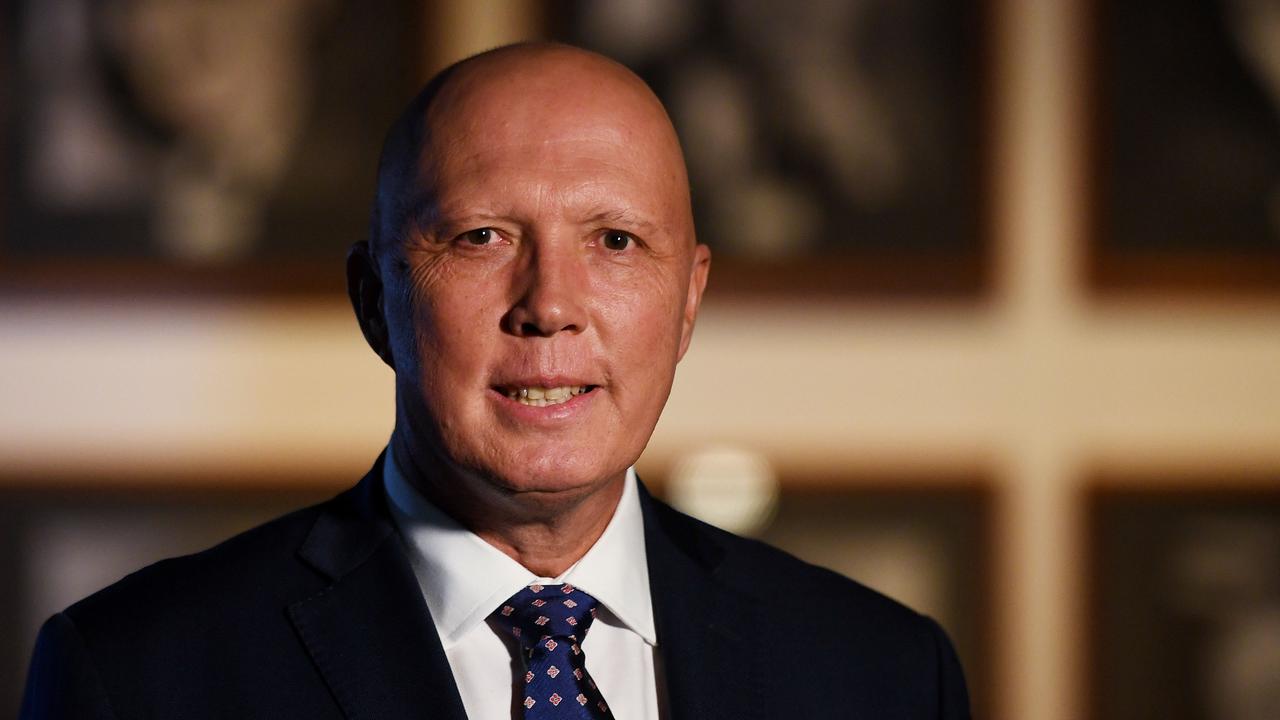Disconnect between Libs and big end of town will hurt both

It’s a mistake to dismiss Dutton’s comments as a misreading of what are simply ‘‘socially responsible positions”, as unnamed corporate leaders have suggested to this newspaper. That argument misses the point, which is that the new Liberal leader sees what constitutes “socially responsible” as contested territory that he wants to define as leader.
Every politician thinks this, because it’s their job to advocate for what they think society should look like and get themselves elected on that basis. If there were enduring consensus on what is “socially responsible” then we probably wouldn’t need elections.
Dutton’s frustration is that, in his view, big business has been prepared to advocate only for the things that it thinks society already wants. According to him, big business has been prepared to advocate on identity politics to win plaudits on Twitter but has not been prepared to go to the barricades over the tough issues that might at first blush be unpopular, but ultimately are good for economic prosperity. Think industrial relations and tax reform – issues that were traditionally considered the true bailiwick of business.
For the new leader to be effectively saying that he will instead focus his policy agenda on small business is a significant development, the effects of which are most likely to be seen when the new government engages in industrial relations reform. If the Liberal Party is not in the corner of big business in that process, who will be? I suspect that if you mapped the rise in Dutton’s growing frustration with big business to the increasing prominence of ESG (Environment, Social, Governance), you would find a very close correlation.
ESG has loomed larger and larger in Australian boardrooms, particularly with respect to net zero and the numerous frameworks being developed to measure and reduce emissions.
To the chagrin of many politicians, ESG has become a form of corporate self-regulation that has a ripple effect throughout the rest of society. Frustrated MPs see regulation as the responsibility of governments, not companies.
But if it’s accepted that climate change is a financial risk that must be measured and mitigated, then there’s at least a cogent argument to self-regulate when it comes to carbon emissions. This has been the orthodoxy in Australia in recent years, but the result is also that the “E” is the only part of ESG that has been afforded detailed analysis.
With both major parties now committed to net zero and the election result showing a clear preference for climate action, the climate wars may be the closest they have been to detente (at least for the moment). What Dutton’s comments suggest is that the political battlefield is about to shift from the “E” to the “S”.
Unlike the “E”, which is generally about the reduction of carbon emissions, the “S” in ESG remains mostly inconsistent across industries and companies save for modern slavery and workplace gender equality reporting, both of which are the result of government regulation. Some see workplace health and safety as a social obligation, others see it as encompassing Indigenous reconciliation or human rights.
And while corporate leaders may have an obligation to talk to their employees about these issues as they relate to the workplace, advocating for political reform externally is where they may come unstuck.
Unless they set clear parameters on what “social” consists of when it comes to corporate ESG frameworks, companies that want to have a voice on social – and thus, by definition, political – issues, tacitly accept that they are a part of the broader political debate.
By engaging in public commentary without a fully rounded awareness of the political landscape, companies also risk falling into a political trap. Dutton has flagged that at the very least he is prepared to call out any apparent hypocrisy from businesses advocating for social change but not adhering strictly to what they preach. I suspect he will happily go much further if given the chance, and use any political slip-up by corporate leaders to his advantage.
Watch, in particular, how greenwashing allegations and dealings with countries that have dubious human rights records are weaponised where that company advocates for social issues seen by some as beyond its remit.
Anyone who thinks this is a risk worth taking given the Liberals are consigned to at least three years in the political wilderness should ask the banks what a committed opposition can do to an industry. Without the unrelenting pressure of the Labor Party under Bill Shorten there would never have been a banking royal commission.
This will make the 47th parliament extremely difficult to navigate for corporate leaders. The Albanese government and a resurgent Greens certainly won’t let themselves be characterised as friends of the big end of town. The broad range of political positions represented on the crossbenches also means engagement in political commentary requires navigation of a more dangerous minefield than ever.
Many business leaders will say that despite the risks, they need to take positions on social issues in order to recruit and retain young talent. If this is the case, they will need to do it with considerable political acumen or risk finding themselves in the middle of partisan fights where the normal rules don’t apply.
Tim Wellington is a director of Chapel Lane Advisory, a public policy and reputational risk advisory firm, and is a former adviser to the Liberal Party.



You can glean a lot from how newly minted political leaders approach their first media appearance. Their choice of topics is more deliberate than usual. First impressions matter. That goes for parliamentary colleagues and the public alike. So the fact that Peter Dutton’s first press conference as Liberal leader included a targeted strike on corporate executives should trigger alarm bells in boardrooms across the country.